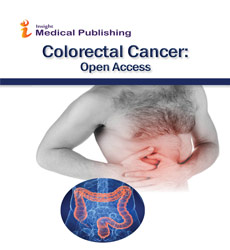Abstract
Nutritional assessment of patients suffering from lung cancer: a prospective observational study of physicians and surgeons in France
Received Date: May 13, 2022 Accepted Date: May 20, 2022 Published Date: May 27, 2022
Malnutrition is a common problem among patients suffering from cancer, estimated at 45,3 % in lung cancer. The consequences are numerous, even though they seem less obvious than in cancers of the digestive tract and head and neck cancers. Despite various screening tools, national and european guidelines, malnutrition is underdiagnosed. This study aimed to assess clinical practices of physicians and surgeons regarding malnutrition diagnosis of patients suffering from lung cancer. We carried out a prospective observational study in France, using online self-administered questionnaire. Findings: Between april and, we collected 206 questionnaires, including 60,7% of pulmonologists, 17,4% of thoracic surgeons, 11,2% of oncologists and 10,7% of radiotherapists. At initial diagnosis, weight loss was determined for 79,3% of all patients and during follow-up consultations, for 67,5% of patients at risk of malnutrition and 70,4% of malnourished patients. Intakes were evaluated for 21,7% of all patients at initial diagnosis. Compared with physicians, surgeons significatively less frequently did both evaluations. Moreover, they were less likely to request serum albumin level and involved dieticians or nutritionists when weight loss was more important. No more than 20 % of physicians and surgeons used screening tools. Nevertheless, the estimation of malnutrition prevalence was appropriate. Physicians, as well as surgeons, did not ignore malnutrition consequences. Optimal nutritional assessment was limited by a lack of time and limited specific knowledge.Despite awareness of malnutrition prevalence and impact, nutritional assessment remains insufficient, especially in surgery. Malnutrition prevention must become a priority in patients suffering from cancer. Improvements of nutritional training for physicians and surgeons, development of nutritional liaison committees and interventional studies are needed to better consider nutritional risk in such patients.
Author(s): Pauline Corbaux
Abstract | Full-Text | PDF
Share this

Google scholar citation report
Citations : 92
Colorectal Cancer: Open Access received 92 citations as per google scholar report
Abstracted/Indexed in
- Google Scholar
- JournalTOCs
- China National Knowledge Infrastructure (CNKI)
- Directory of Research Journal Indexing (DRJI)
- WorldCat
- Publons
- International Committee of Medical Journal Editors (ICMJE)
- Secret Search Engine Labs
Open Access Journals
- Aquaculture & Veterinary Science
- Chemistry & Chemical Sciences
- Clinical Sciences
- Engineering
- General Science
- Genetics & Molecular Biology
- Health Care & Nursing
- Immunology & Microbiology
- Materials Science
- Mathematics & Physics
- Medical Sciences
- Neurology & Psychiatry
- Oncology & Cancer Science
- Pharmaceutical Sciences

